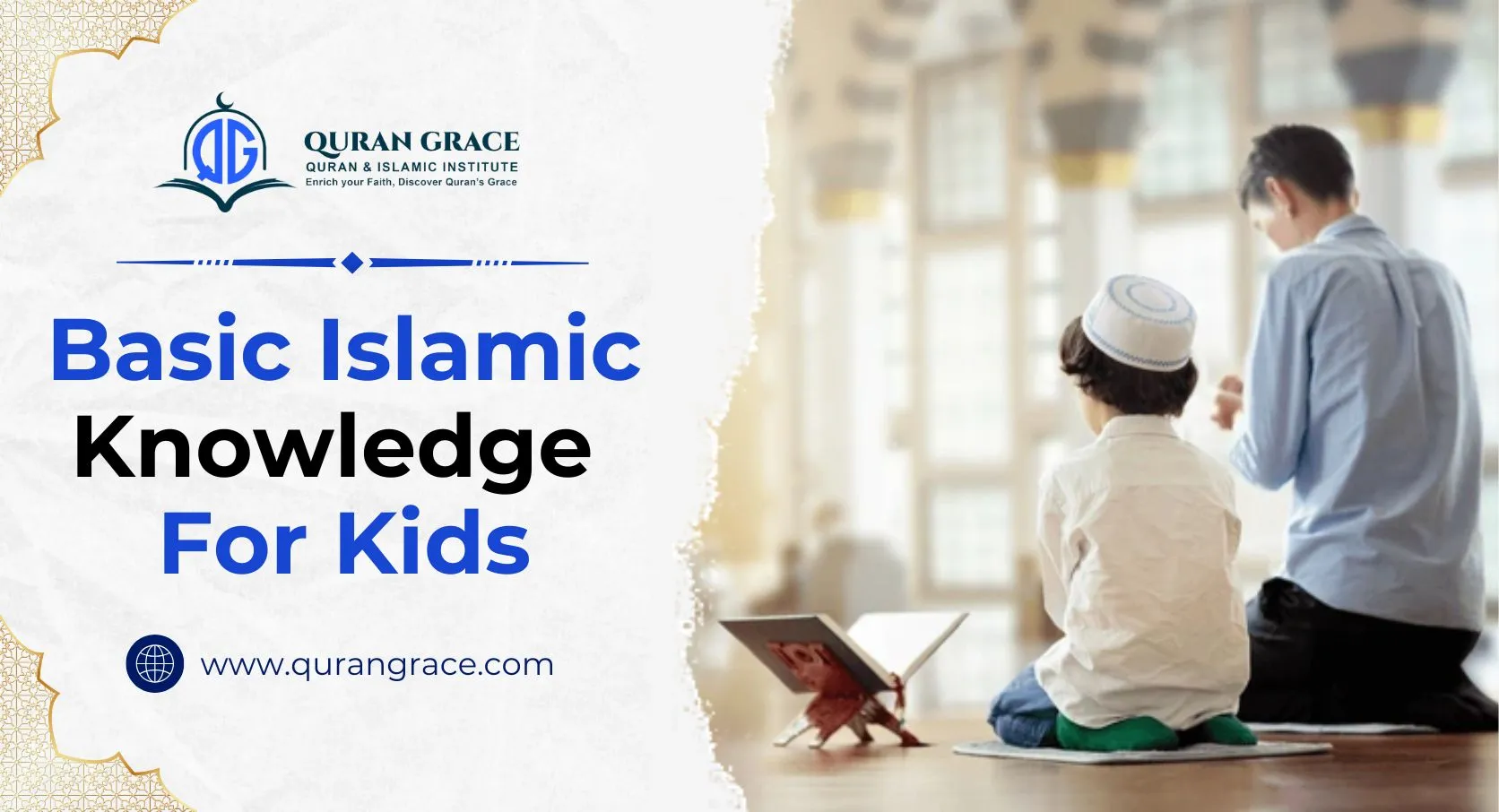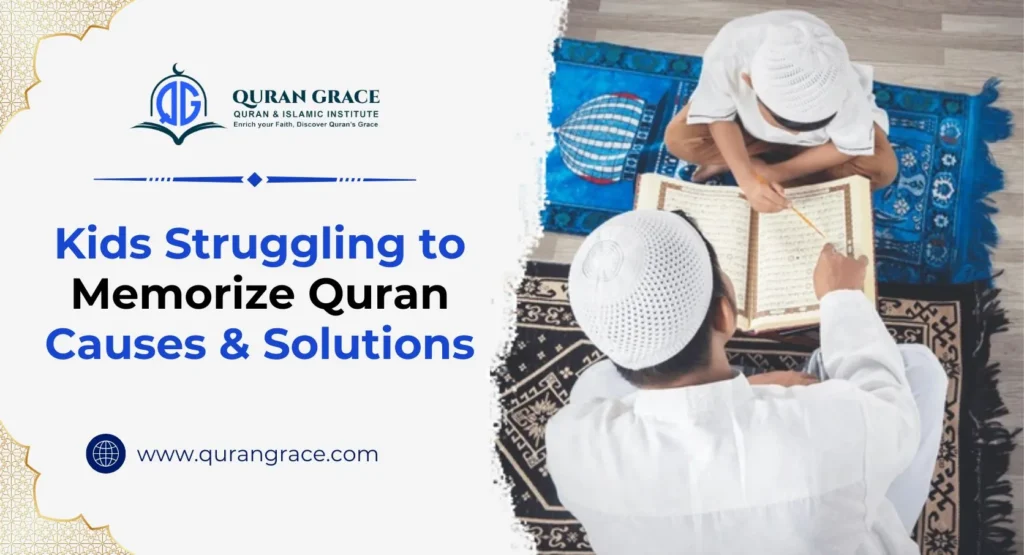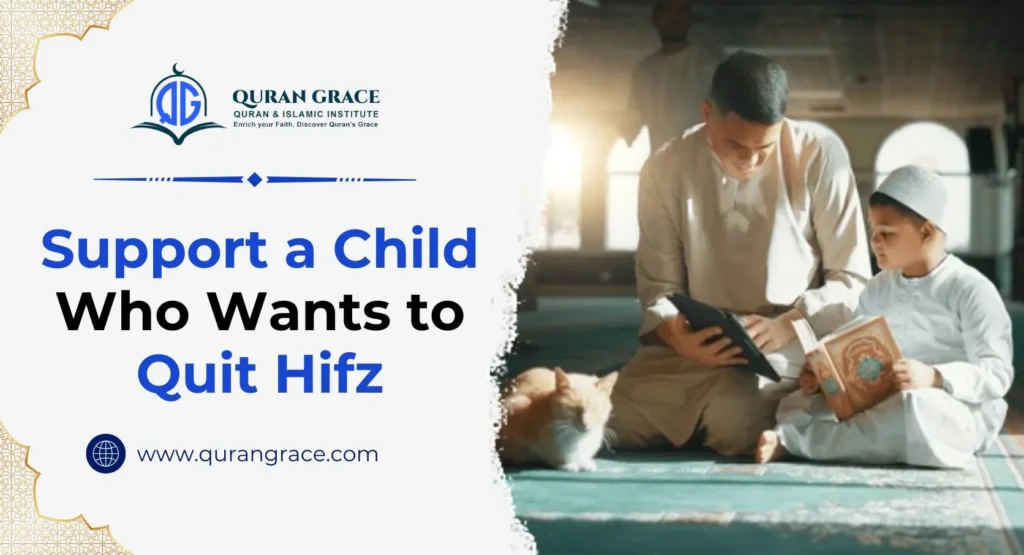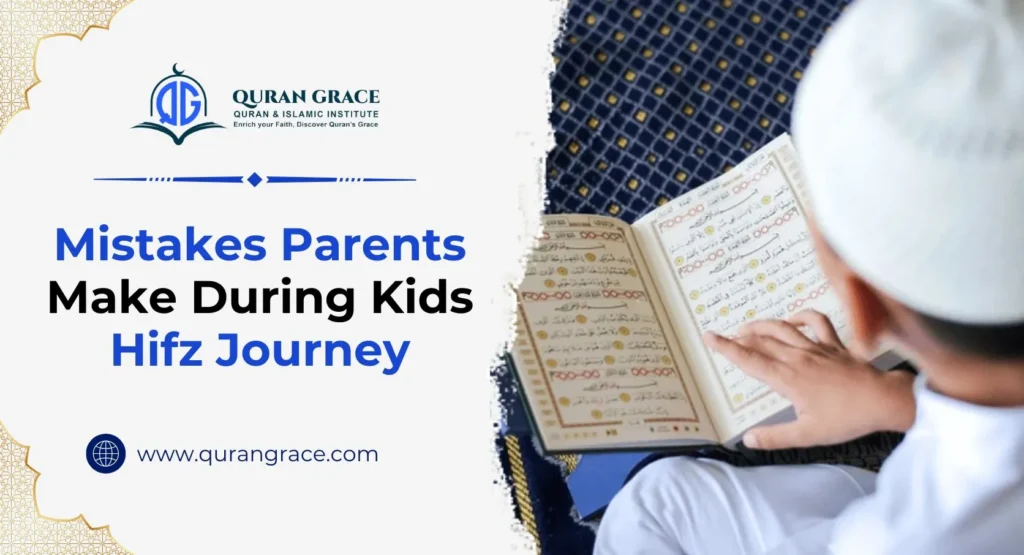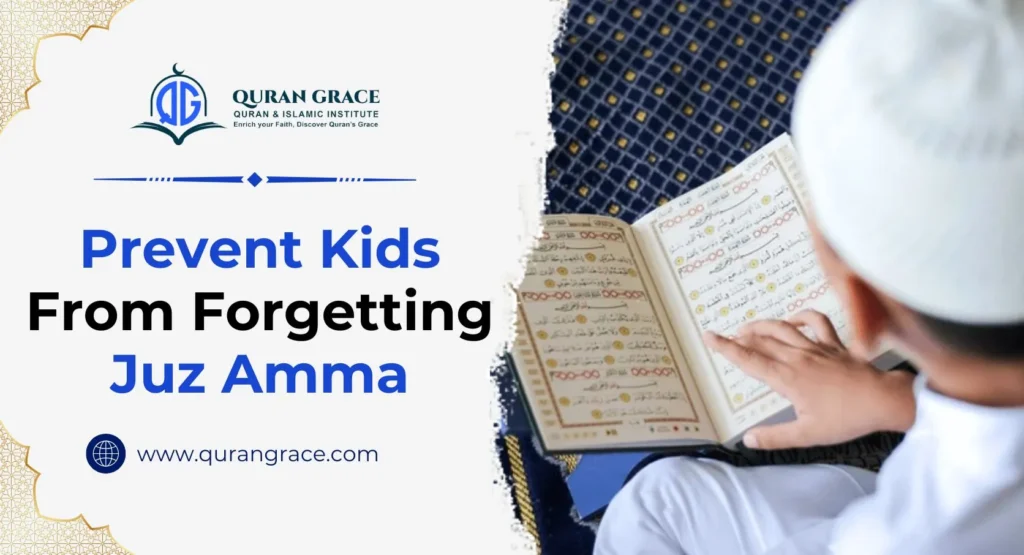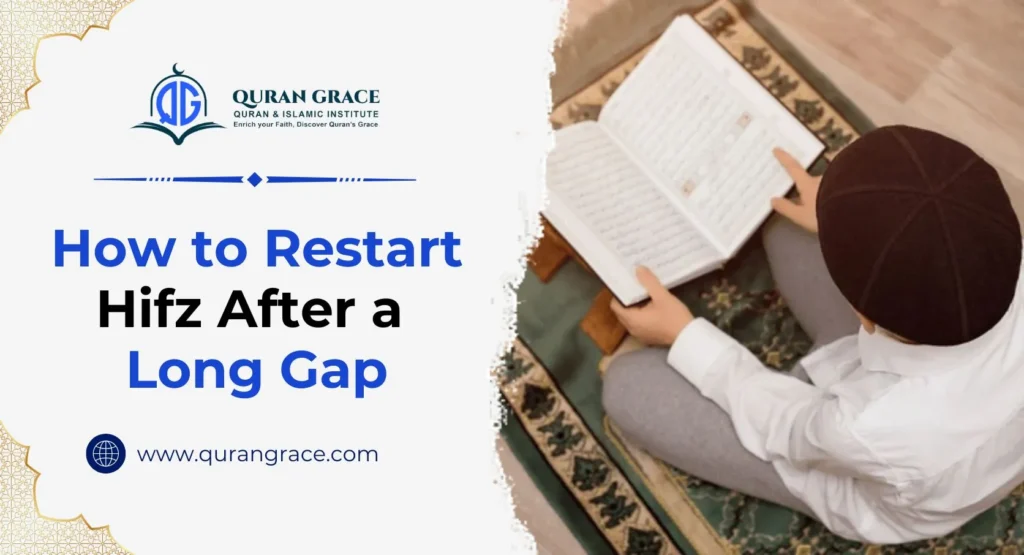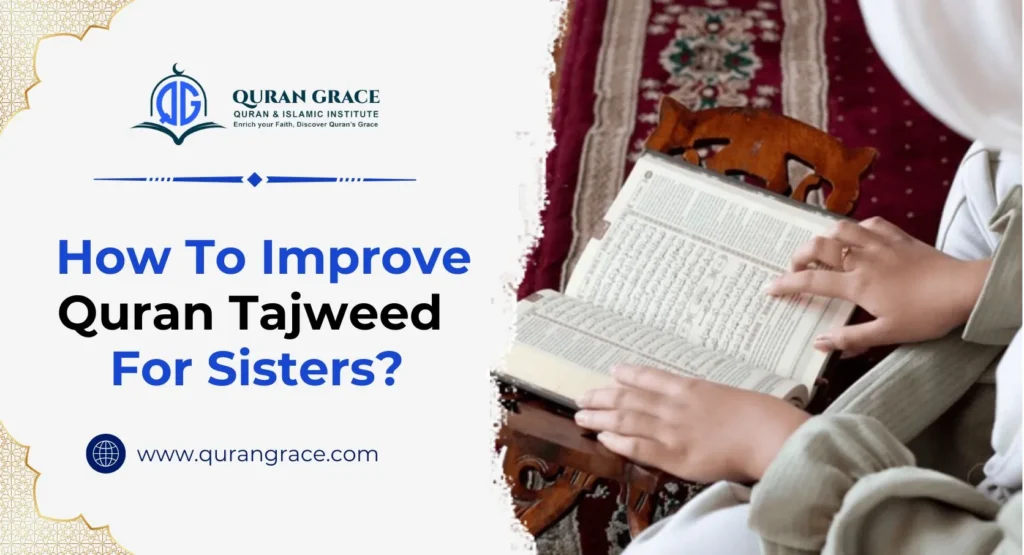Basic Islamic knowledge is essential for children to build a strong understanding of each point. This basic knowledge includes the five pillars of Islam, the six main beliefs, Quranic verses, stories of the Prophets, Islamic practices, moral values, supplications, and additional important concepts.
These teachings help children grasp fundamental Islamic principles and empower them to cultivate strong character. Below, we will list some of the important points to consider when considering essential Islamic knowledge tailored for toddlers, aiming to enrich their understanding and connection to their faith.
Table of Contents
ToggleEducational Journey for Kids to Get Basic Islamic Knowledge
Here are some essential steps shared by Quran Grace to get Islamic education for kids.
1. Begin With the Pillars of Islam
The 5 main pillars of Islam hold great importance in teaching the basics of Islamic studies for kids. It teaches all the necessary things a child must learn. The Five Pillars of Islam are
- Shahada (The Declaration of Faith)
- Salah (The 5 Daily Prayers)
- Zakah (Giving the charity)
- Sawm (Fasting)
- Hajj (Pilgrimage)
To learn more about the details of the pillars of Islam, consider enrolling in Quran Grace online Islamic classes, where you can learn about each pillar in great detail.
2. Encourage the Memorization of Short Verses
To foster a connection between children and the love of Allah, it is important to present the Quran as a form of divine communication. It can be compared to a letter from Allah, providing guidance and wisdom.
One effective approach is to encourage family activities that include reciting short verses or Surahs together. Additionally, enrolling children in Quranic classes or arranging for a tutor can enhance their learning experience. Memorizing verses is a commendable effort, and starting with shorter Surahs like Al-Fatiha can be particularly beneficial.
As children mature, they can gradually progress to memorizing longer passages from the Quran. To help interpret Quranic teachings for younger audiences, utilizing storybooks and educational apps can simplify concepts and make them more engaging and accessible.
3. Narrate Prophets’ Stories From the Quran
The Quran is full of engaging stories of prophets, which kids can listen to and enjoy the moral lessons.
-
The Story of Prophet Nuh
This story is about Prophet Nuh and the ark he made, emphasizing themes of faith and patience. It illustrates how Prophet Noah remained steadfast in his belief in Allah and continued to guide his people despite facing immense challenges.
-
The Tale of Prophet Ibrahim
This story recounts the experiences of Prophet Ibrahim, highlighting his unwavering faith in Allah, even when confronted with difficult circumstances. It serves to teach children the importance of trust and belief in divine wisdom, encouraging them to remain patient in their own lives.
-
The story of Prophet Yusuf:
Prophet Yusuf’s journey to Egypt is a captivating tale filled with lessons on patience, forgiveness, and trust in Allah’s plan. This story showcases how Prophet Yusuf faced trials yet remained hopeful and forgiving, teaching children valuable morals about resilience and the power of faith.
These stories not only entertain but also impart significant life lessons, making them ideal for educating children about key Islamic values.
4. Explain Islamic values
To inculcate the Islamic basic education, focus on teaching Islamic values.
- Salah and Wudu: It is important to explain the significance of Salah (prayer) and Wudu (ablution) in Islam. Engaging children in learning the steps of Wudu can be turned into an enjoyable activity, promoting their understanding of this fundamental ritual.
- Duas and Azkar: Teaching children simple daily Duas and Azkar can help them incorporate these prayers into their routines. Examples include Duas for waking up, before eating, and before sleeping, enhancing their spiritual connection throughout the day.
- Sunnah and Etiquette: It is critical to explain the proper manners of eating, sleeping, and other daily activities in Islam. Teaching children to say ‘Bismillah’ before meals and ‘Alhamdulillah’ afterward promotes good manners and gratitude.
- Halal and Haram Food: Introducing the concepts of halal (permissible) and haram (forbidden) food helps children understand what is permissible to consume in Islam. In Islam. Explaining these dietary guidelines allows them to make informed decisions.
- Purifying Charity: Teaching children about Zakah and Sadaqah (charity) emphasizes the significance of assisting those in need. Encouraging them to set aside a portion of their allowance or savings for charitable donations fosters a sense of generosity and social responsibility.
5. Teach Seerah and Islamic History
Islamic education centers around the teachings and life of the Prophet Muhammad (peace be upon him). To engage children, it is important to present his biography in a relatable and captivating way, emphasizing his qualities such as kindness, honesty, and love for all individuals.
By sharing stories that illustrate these traits, children can understand the significance of his teachings. Additionally, Islamic history course is rich with fascinating events and stories, providing an excellent opportunity to spark children’s interest. Explain the origin of Islam, its spread, and notable events like the Battle of Badr, etc.
To make learning even more engaging, visual aids such as colorful maps and pictures can help students better visualize historical events. Incorporating quizzes and riddles can further enhance engagement, making the educational experience both informative and enjoyable. Online seerah course can help students know more about the seerah Nabawiyyah properly.
6. Tell about Islamic Celebrations
Eid al-Fitr is a significant celebration observed by Muslims, marking the end of Ramadan, a month dedicated to fasting and spiritual reflection. On this festive occasion, Muslims wear new clothes, participate in collective prayers at the mosque, and exchange gifts with family and friends. The celebration embodies a sense of joy and gratitude, resembling a party atmosphere, especially for children after a month of fasting.
In contrast, Eid al-Adha, known as the “Festival of Sacrifice,” commemorates the willingness of Prophet Ibrahim to sacrifice his son in obedience to God’s command. To honor this event, Muslims around the world engage in the ritual of sacrificing an animal. The meat from the sacrifice is then distributed to those in need, promoting values of sharing, compassion, and community support.
Make these events engaging by involving kids in
- Colouring
- Drawing
- Cutting and pasting activities
- Watching documentaries, etc.
7. Focus on Building Up Moral Values
In the context of Islamic education for children, instilling strong moral values is essential for their character development. Core principles such as honesty, kindness, and respect play a significant role in shaping their behavior. Encouraging truthfulness can be effectively achieved by sharing stories highlighting the Prophet’s honesty. Additionally, promoting kindness through various narratives can reinforce this important value.
It is also beneficial to discuss common negative habits within the framework of Islamic teachings. Emphasizing the importance of truthfulness, discouraging gossip and backbiting, and condemning cheating are all crucial. By explaining the consequences of these actions in both this world and the Hereafter, children can gain a deeper understanding of their significance.
Respect for parents holds a prominent position in Islam. Teaching children to treat their parents with kindness and obedience is vital, and sharing relevant stories and Hadiths can illustrate the importance of this virtue. Encouraging children to express love and appreciation through gestures such as making cards or small gifts for their parents can further reinforce these lessons.
Conclusion
In our initiative to impart fundamental Islamic knowledge to children, we explored the key pillars of Islam, emphasized the significance of Quranic education through quran classes for kids, discussed various Islamic practices, and highlighted essential moral values. We addressed the critical role that Islamic knowledge plays in the development of children, providing them with a well-rounded understanding of their faith.
Additionally, we suggested a variety of resources for those seeking further learning opportunities. By adhering to these guidelines, we can effectively assist children in establishing a solid foundation in their Islamic knowledge and values, ultimately nurturing virtuous and responsible individuals who embody the teachings of Islam in their everyday lives.

